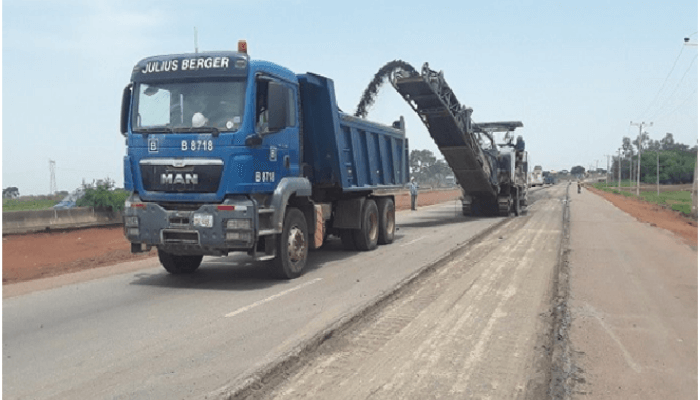Julius Berger Nigeria Plc, a Nigerian-based construction company, is reaping the gains of naira stability as its net foreign exchange gains increased more than fivefold for the nine months ended September 30, 2025, boosting the company’s profit.
The construction group’s net foreign exchange gains surged to N39.29 billion, compared with N5.69 billion in the same period of 2024, an increase of more than 576 percent
This jump was linked to the naira’s volatility, which produced revaluation gains for the company’s foreign currency holdings and receivables. FX-related gains pushed total “other gains and losses” to N44.99 billion, up sharply from N15.86 billion.
Read also: Banks trade at discount as FX gains cool
Revenue also strengthened, rising 34 percent to N540.82 billion from N405.00 billion, reflecting the accelerated execution of civil and building projects in Nigeria as well as a strong expansion in offshore operations.
Revenue from Europe nearly doubled to N41.91 billion from N24.79 billion in the same period last year, while Africa’s revenue rose to N498 billion.
Operating profit rose to N24.22 billion, up from N14.53 billion in 2024, despite higher costs. Cost of sales increased to N460.66 billion, from N347.39 billion, amid inflationary pressure on materials and logistics. Administrative expenses climbed to N69.99 billion, while impairment on receivables jumped more than fourfold to N30.62 billion, highlighting payment delays from clients.
At the bottom line, the company delivered N18.25 billion in profit after tax, up from N12.31 billion last year, supported by robust FX gains and revenue growth.
Julius Berger’s balance sheet strengthened, with total assets expanding significantly due to currency revaluation and increased capital expenditure.
Read also: Julius Berger’s weak cash flow from core operations raises profitability concerns
Property, plant, and equipment surged to N298.55 billion from N76.33 billion a year earlier, an increase reflecting both new investments in machinery and the impact of FX translation on asset values. Right-of-use assets also rose to N34.30 billion from N38.24 billion, driven by exchange effects and lease renewals.
Cash and cash equivalents improved to N175.19 billion, up from N157.77 billion at the start of the year, partly aided by FX translation gains of N1.00 billion.
The company also reduced its leverage to zero, paying down all outstanding borrowings from N2.95 billion the previous year. Lease liabilities moderated slightly to N37.38 billion, reflecting scheduled repayments.
Tax receivables fell to N41.86 billion, compared to N62.69 billion, suggesting improved recovery of VAT and withholding tax balances.
The company delivered a sharp turnaround in operating cash flow, posting N20.13 billion in net cash from operations compared with a negative N41.87 billion in the prior year. This shift was driven by strong customer collections totalling N620.95 billion, even though cash paid to suppliers and employees rose due to inflation and expanded project execution.
Read also: Julius Berger’s ABUMET promotes youth empowerment through graffiti art contest
Investing activities yielded N10.52 billion in net inflows, supported by N7.61 billion in proceeds from PPE disposals and N9.66 billion in interest income. PPE purchases increased to N6.76 billion as the company continued to upscale its equipment fleet.
Financing activities resulted in a net outflow of N14.24 billion, driven by lease payments of N6.21 billion, dividend payouts of N5.32 billion, and interest expenses on existing facilities. No new borrowings were undertaken during the period.
Overall, cash and cash equivalents rose by N16.41 billion, positioning the company to meet upcoming project obligations.

